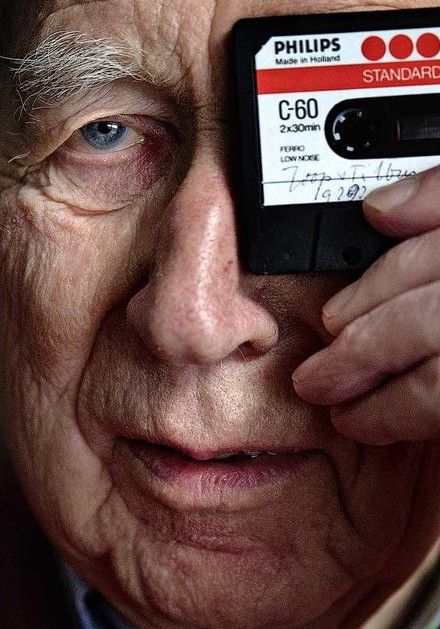Lou Ottens, the Dutch engineer credited with inventing the audio cassette tape, has died aged 94 in his hometown of Duizel in the Netherlands.
Ottens was employed by Philips for the entirety of his career, and struck a deal with Philips and Sony that saw his model confirmed as the patented cassette after a number of Japanese companies reproduced similar tapes in a number of sizes.
Ottens became head of Philips' product development department in 1960, where he and his team developed the cassette tape.
In 1963, it was presented at the Berlin Radio electronics fair and soon became a worldwide success.
In 1960, he became the head of the new product development department in Hasselt. While in this position, he led the development of Philips' first portable tape recorder, the EL 3585. This project proved to be quite successful, with over 1 million units being sold.
In 1969, Ottens became director of Philips Hasselt. Under his direction, the Hasselt factory would focus primarily on producing Philips cassette systems, with the popularity of general compact cassettes growing.
With a growing demand for compact cassettes, Philips Hasselts grew larger, reaching an employee count of over 5,000.
An estimated 100 billion cassette tapes have been sold around the world since they were introduced in the 1960s.
Ottens was also involved in the development of the compact disk, and more than 200 billion of those have been sold worldwide to date.
When asked about his career, he said his biggest regret was that Sony and not Philips had created the iconic cassette tape player, the Walkman.
According to the Official Charts Company in the UK, the sale of cassettes in the first half of 2020 increased by 103% compared to the same time period the previous year.
And in the US, according to Nielsen music, sales of cassette tapes grew by 23% in 2018 compared with the previous year.
Ottens was born in Bellingwolde on 21 June 1926. He showed an interest in technology and tinkering from an early age.
While in his teens, during World War II, he constructed a radio that he would use to secretly listen to Radio Oranje broadcasts. In order to avoid Nazi jammers, Ottens constructed the radio with a primitive directional antenna.
After the war, Ottens began attending the Delft University of Technology, where he studied mechanical engineering. While attending university, Ottens worked part time as a drafting technician for an X-ray technology factory. He graduated in 1952.
After retiring, Ottens remained active in the field of technology for many years. He became chairman of the Dutch Association for Logistics Management in 1988.



